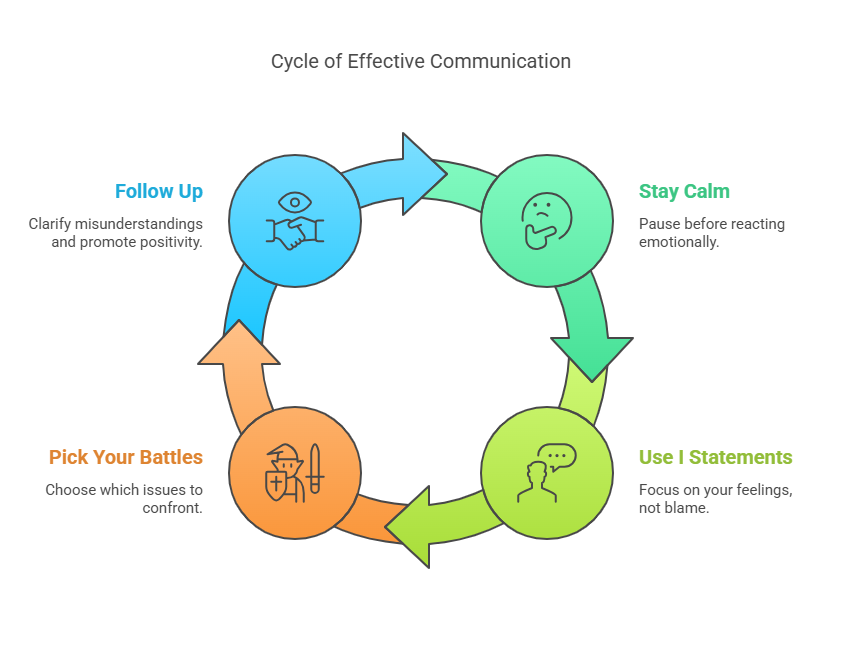What to Say to Parents That Make Lots of Bad Assumptions?

Parents may quickly conclude what might be happening with a child who is having difficulty in school. They may think it’s because the child isn’t trying hard enough or doesn’t care enough. For instance, a child who appears to be disengaged and has issues related to anxiety, learning challenges or difficulty in adjusting to distance learning. However, these aspects can vary from person to person, so it is essential to have open communication to remove any confusion. So how do we engage with parents who make lots of bad assumptions and help them broaden their perspectives? Let’s look at some ways to have those conversations.
Reasons Why Parents Make Lots of Bad Assumptions?
Understanding why parents often jump to conclusions can help to deal with these tricky conversations. Here are some common roots of parental assumptions:
Fear For Your Well being
Many parents make assumptions out of a genuine concern for their children’s future. They worry about your career choices, relationships and overall happiness. This can lead to hasty decisions, thinking they know what’s best for you.
Cultural Gaps
Differences in upbringing and cultural backgrounds to create misunderstandings. What was considered acceptable or successful in one generation may not resonate with the current one. These gaps can cause parents to misinterpret your choices or behaviors.
Insecurities or Regrets
Sometimes parents project their own insecurities or regrets onto their children. If they struggle in a specific area, they may assume you will too and deal with concerns about your abilities or plans.
Lack of Communication
Without it, parents are left to fill in the space with their assumptions. There’s also the fact that if you don’t share to them about your life, they might jump to conclusions based on what limited information they have and lead to misunderstandings.
The importance of Empathy
It’s important to challenge these assumptions. Knowing this reasoning can enable you to validate parents’ concerns without condoning behavior
What to Say: 6 Compassionate Responses
Here are the following compassionate responses to consider:
Acknowledging Their Concerns
Example: I hear you are worried about and I appreciate that you care. Let me explain my perspective.
Why it works: This response validates their emotions while opening the door for dialogue showing that you value their concerns.
Ask for Clarification
For example: Why do you think that? I want to know where you’re coming from.
Why it works: It forces them to re-examine their assumptions to create a more productive dialogue.
Set Boundaries Firmly
For example: I’m happy to discuss this, but I need you to ask questions rather than assume.
Why it works: This establishes respect and sets clear expectations to help avoid misunderstandings later.
Redirect With Positivity
Example: Rather than what can go wrong, may we discuss solutions?
Why it works: You move away from the problem and declare you want to work on a solution together—much more positive and collaborative.
Common Scenarios & Responses
Here are some common scenarios where parents might make assumptions with responses:
Scenario 1: You Are Wasting Your Life With That Career Choice.
Response: I know it’s not what you pictured for me, but this is the road I’m walking that makes me happy. Let me explain why.
Why it works: This validates their concern and creates space for deeper exploration and understanding.
Scenario 2: You Are Spoiling Your Kids.
Response: Parenting styles evolve over time. I want to share what works for us.
Why this works: You positively affirm their perspective while planting the idea that parenting is often a moving target — which opens up a conversation about your choices.
Scenario 3: If You Keep Acting Like That, You Will Never Find A Partner.
Response: I’m focusing on being true to myself first. Let’s talk about something else.
Why it works: This sets a boundary while showing self-identity and it shifts the conversation away from negativity.
What not to say
When dealing with challenging conversations, avoiding reactive phrases that can increase conflict is essential. Here are some phrases to clear out:
- You never listen.
- You are so judgemental.
- This is why I don’t tell you anything.
Why it Matters
Using these phrases often emphasizes parenting styles. Focus on constructive dialogue that encourages understanding.
Tips for Effective Communication
Good communication helps build strong relationships and clear understanding. Here are some tips to improve how you communicate
Stay Calm
Pause before reacting emotionally. Taking a moment can help you respond more thoughtfully.
Use I Statements
For example say, “I feel hurt when assumptions are made without asking me. This focuses on your feelings rather than blaming the other person.
Pick your battles
Not every assumption needs a confrontation. Determine which issues are worth addressing and which can be let go.
Follow up
It helps to clarify misunderstandings and promote positive communication.
When To Seek Outside Help
You should look for the following signs to seek outside help:
Constant Hostility Or Refusal To Listen
If conversations consistently lead to conflict without resolution.
Assumptions Rooted In Mental Health Issues
This includes anxiety or control tendencies that may place perceptions at an angle.
Final Thoughts
Patience, clear communication and establishing boundaries are essential for rebuilding trust in relationships with parents or Step Parent. Approaching conversations thoughtfully, you can create a more understanding and supportive environment. Focus on resolving family conflicts and gain valuable insights to enhance your communication skills.

Aashley Kai is the Editorial Director of Chelsea Famous Parenting and a licensed expert in early childhood education. She holds a Master’s in Child Psychology from the University of Texas Southwestern Medical Center and has worked as a preschool teacher and child therapist. Since joining in 2024, Aashley has been dedicated to creating well-researched, trustworthy parenting resources. Her work helps parents and caregivers foster nurturing, educational environments for children. Outside of work, she enjoys hiking and photography, capturing nature from a child’s perspective.







